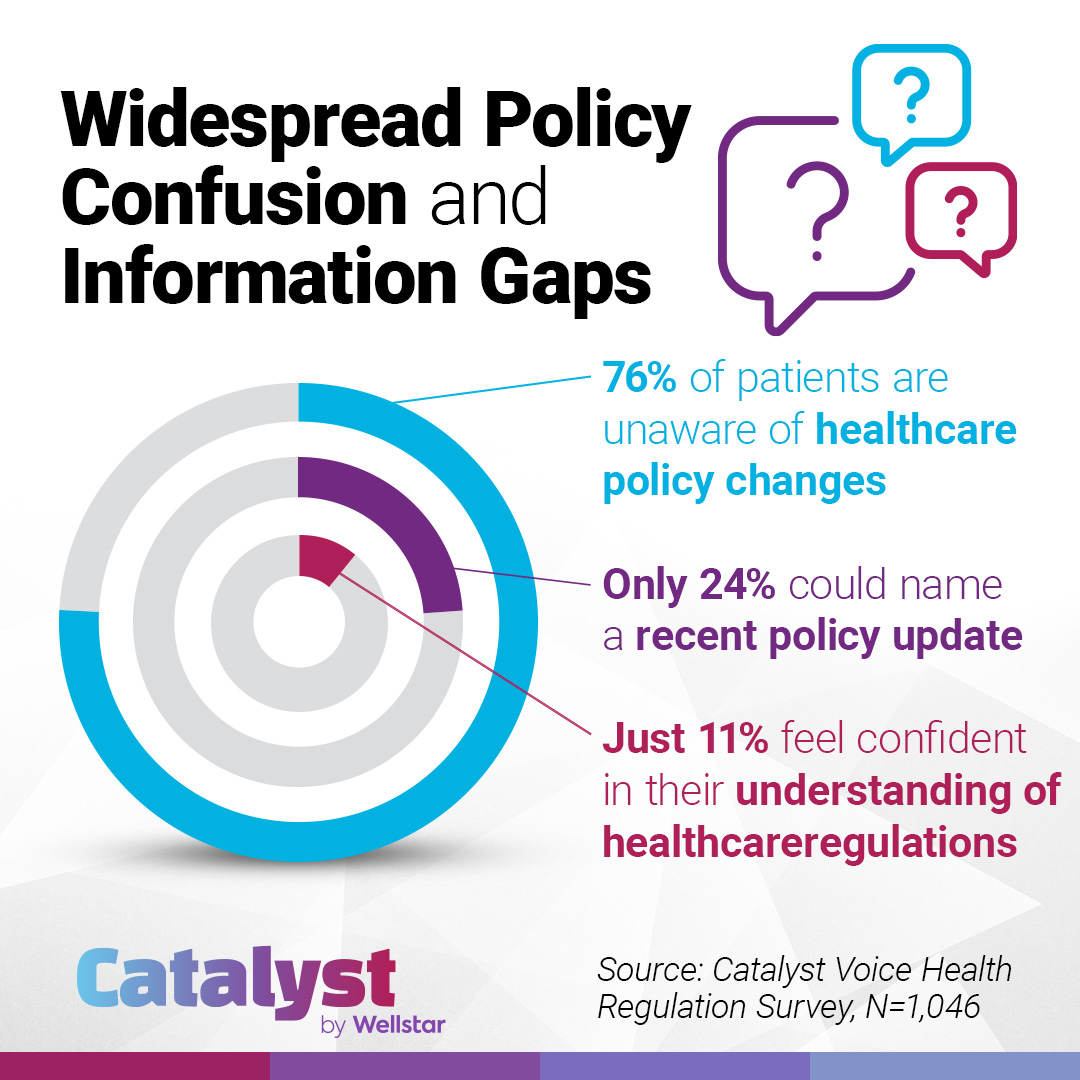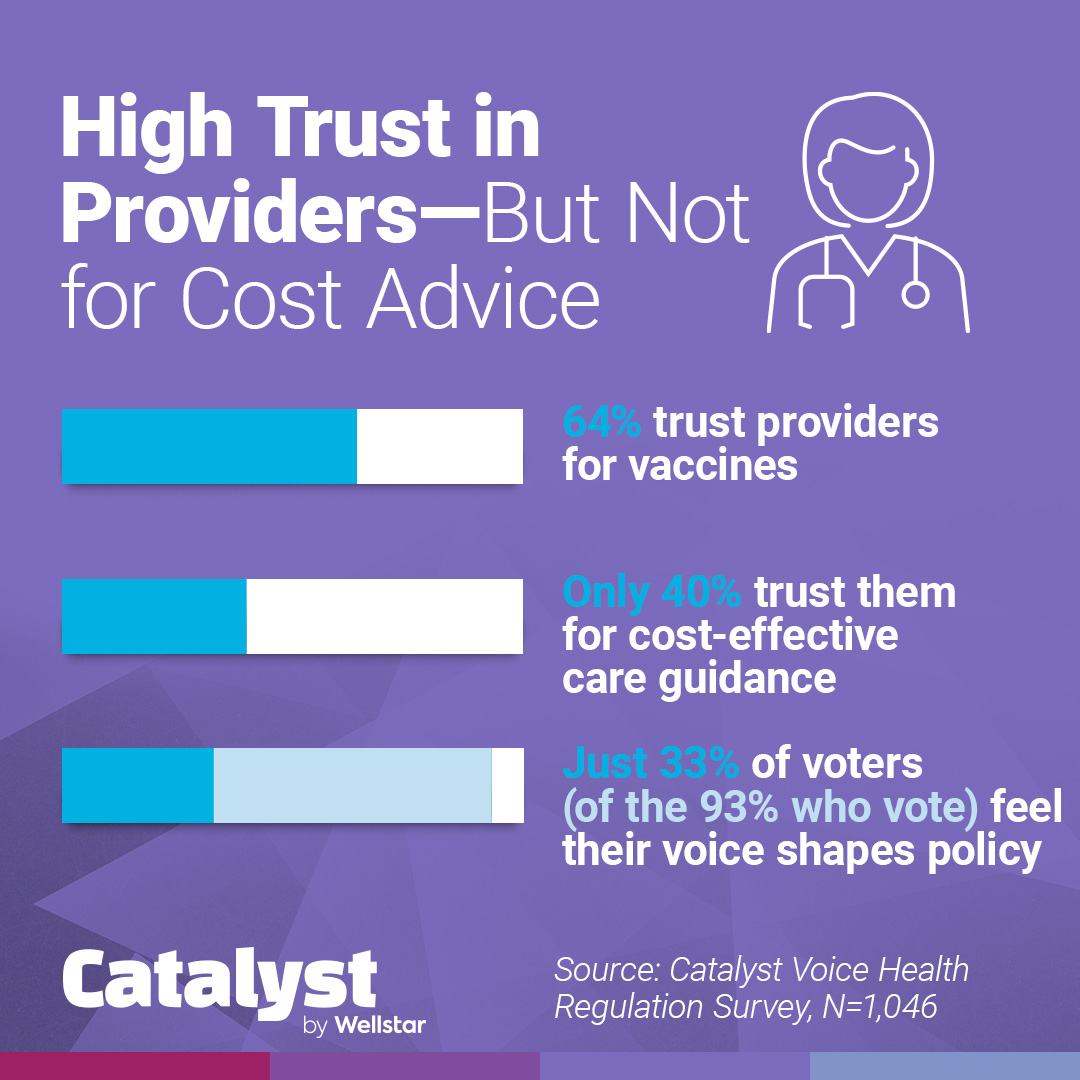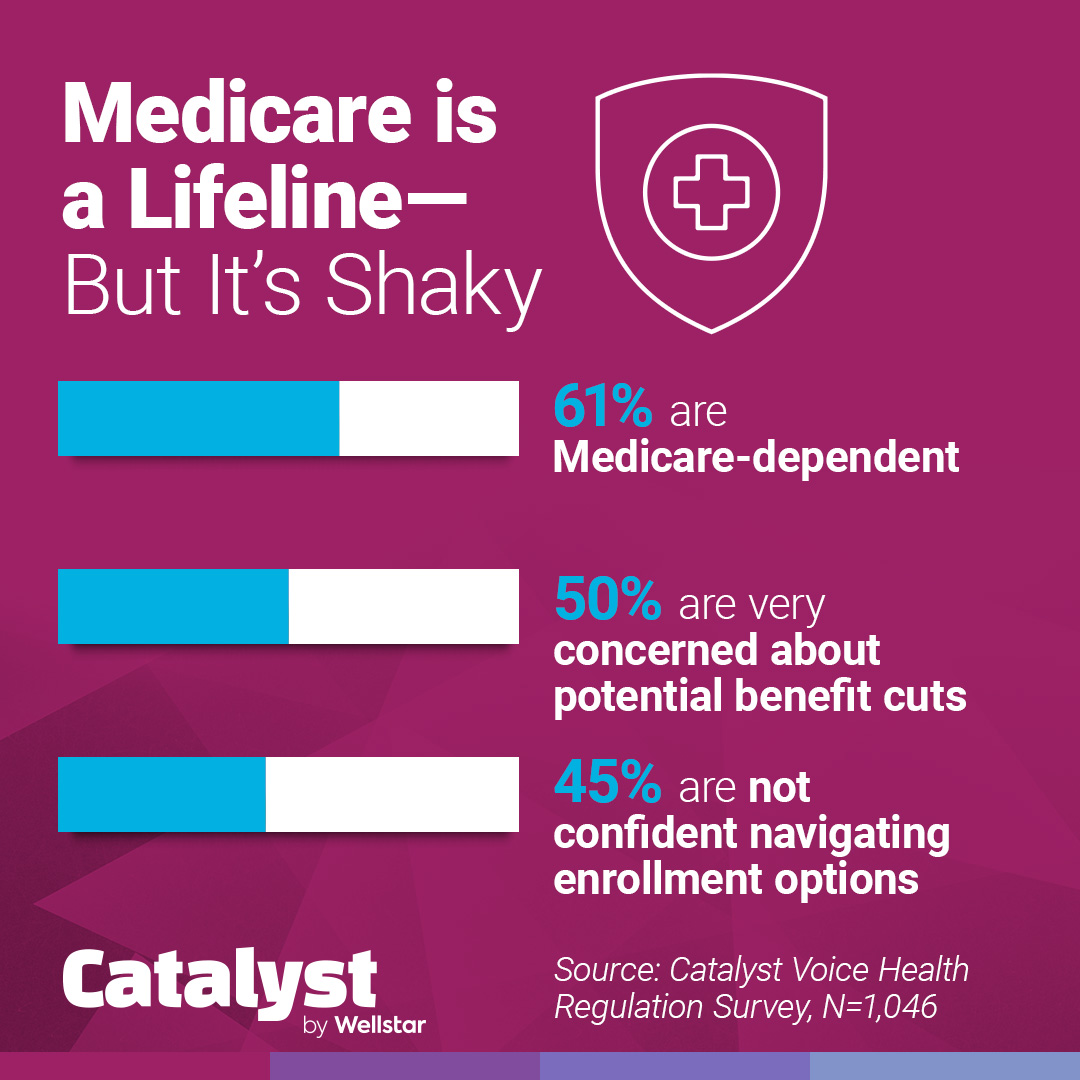
Key Voice Insights: A new survey reveals just how confused, concerned, and cut off patients feel when it comes to healthcare policy — and why it’s more than just a communication problem.
If you’ve ever struggled to make sense of a healthcare bill, you are not alone. For most patients, this is where the rubber meets the road. Where the road begins is a fast-shifting system of healthcare rules and regulations, with which come changes to patient care. Survey respondents tell us they are struggling to keep up, and the consequences are personal.

What we heard from patients
In February 2025, we surveyed 1,046 members of our Voice panel: consumers who are engaged, responsive, and mostly over the age of 55. What we found was striking: nearly three out of four do not know much, if anything, about recent healthcare policy changes. Half have no idea if changes have happened at all, and only 11% feel confident in their understanding of the bigger system shaping their care.
People are paying attention; they are just not getting answers.
Most say they rely on traditional news outlets and/or social media to understand whatʼs happening around them, but 40% have encountered misinformation along the way. Only a small portion are hearing about changes from the people they trust most: their providers.
The cost of confusion
Behind this awareness gap is a more immediate reality: people are making decisions about their health based on fear of what they’ll owe. The numbers tell the story:

This isnʼt just stress — itʼs avoidance. Some are skipping annual visits.
Others are putting off scans, labs, or recommended treatments. While 31% admit they delay care occasionally, quietly weighing costs over their care, an alarming 15% say they put off care frequently.
Voting with no voice
Perhaps one of the most sobering stats: 93% of respondents say they vote in elections, yet 45% feel their voice doesnʼt matter when it comes to shaping healthcare policy. When it comes to decisions that impact their insurance, prescription medications, or hospital visits, they feel unheard and powerless.

That gap between participation and influence is more than political — itʼs personal. It contributes to anxiety, confusion, and mistrust in the system as a whole.
So what can we do?
We can start by listening. This study was not just about collecting data, it was about hearing the real fears and frustrations of the people we serve. Patients need more than access to care. They need access to clarity.
This means:
When asked if they know how to enroll in affordable care if needed, nearly half of respondents say they do not. Thatʼs a signal — and an opportunity.
